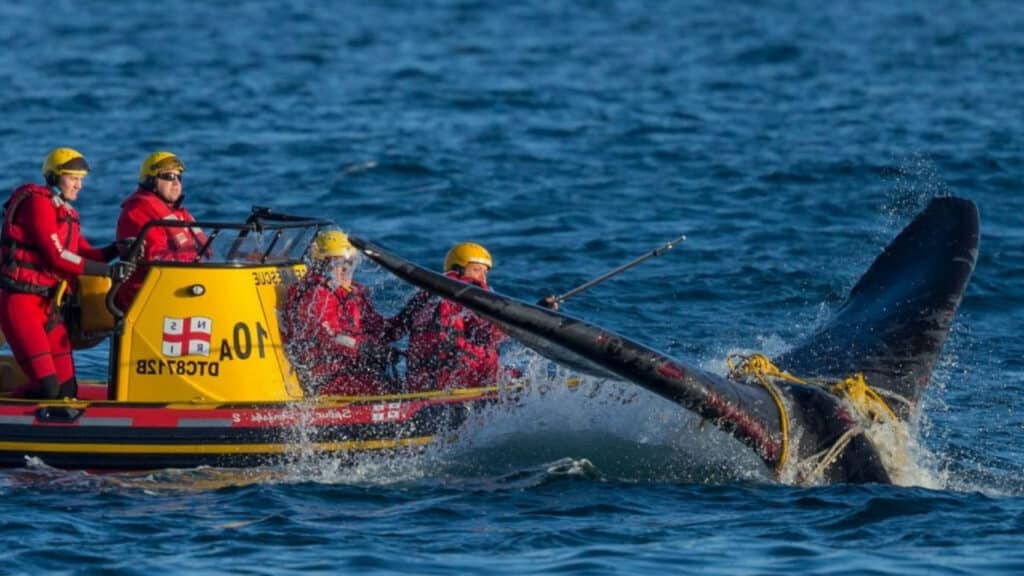A truly terrifying statistic is that every year, more than 300,000 whales, dolphins and porpoises die after getting entangled in fishing nets, with devastating effects on the different species. Some drown immediately, while those who survive their initial entanglement endure many painful months, ultimately bleeding out from deep wounds or dying of starvation because their ability to dive and feed is impaired.
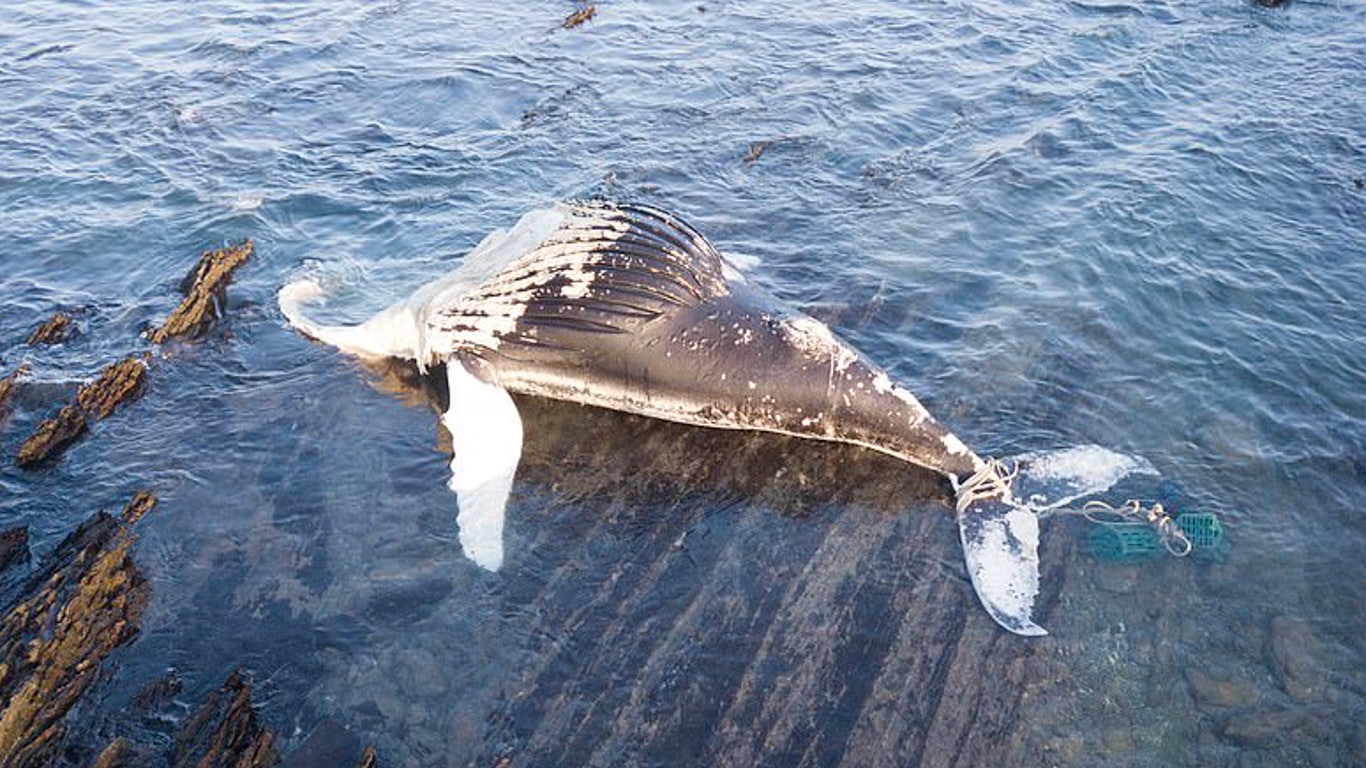
The situation is even more critical now because peak calving season has begun
along the South African coastline.
The risk to whales is particularly high in South African waters which are part of humpback whales’ yearly migratory route and where southern right and Bryde’s whales go to mate and give birth – in areas where, to make matters worse, illegal fishing is rife. Once whales get entangled in fishing nets, they can’t dive as deep or as easily which means they catch less food and slowly but steadily become weaker, with fatal consequences. When this happens to mother whales, they struggle to nurse their calves while dragging the fishing gear they are entangled in – simultaneously while weakening from injuries they may have sustained.
The great whales of our seas barely escaped being hunted to extinction. We cannot let fishing gear entanglements push them over the edge. We can have a positive impact – we can save lives – but we need your continued support.
As the international fishing industry grows, the problem is getting worse. Fortunately, there are brave and dedicated expert teams that put their lives on the line to help free entangled whales. Our partner, the National Sea Rescue Institute (NSRI), responds anywhere along the entire South African coastline to free whales from life-threatening entanglements.
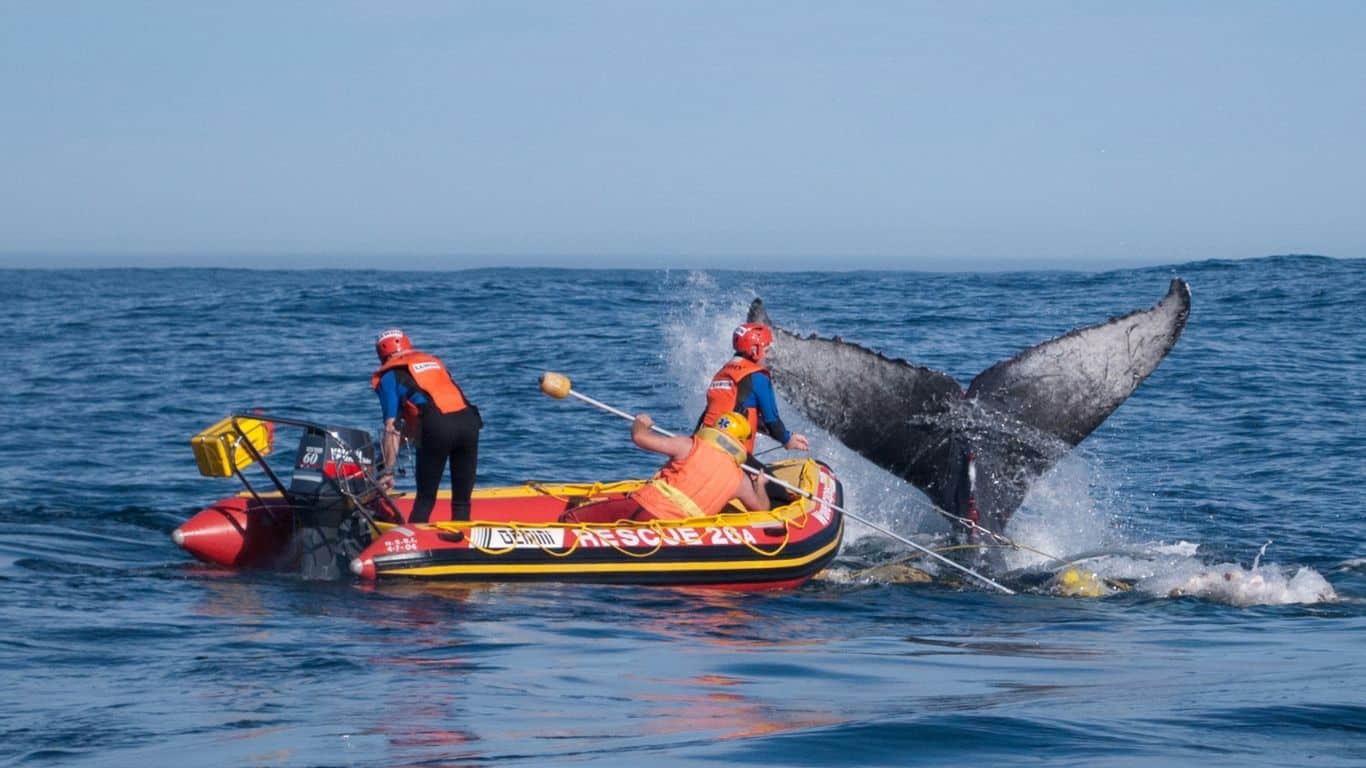
These highly trained teams are on 24-hour standby – as soon as they get a report of an entangled whale, they take to the seas.
It is a dangerous job, requiring skill and rigorous training. NSRI volunteer teams must get close to these stressed, giant wild animals – often in wild open seas. Using specially designed knives and hooks at the end of long poles, and working lines and kedging buoys, they free the whales from ropes and nets, while being careful to not cause them further injury.
Freeing whales requires specialized equipment. For this reason, NSRI reached out to ASI for support in funding the purchase of a whale disentanglement kit and the training of 10 new disentanglement experts.
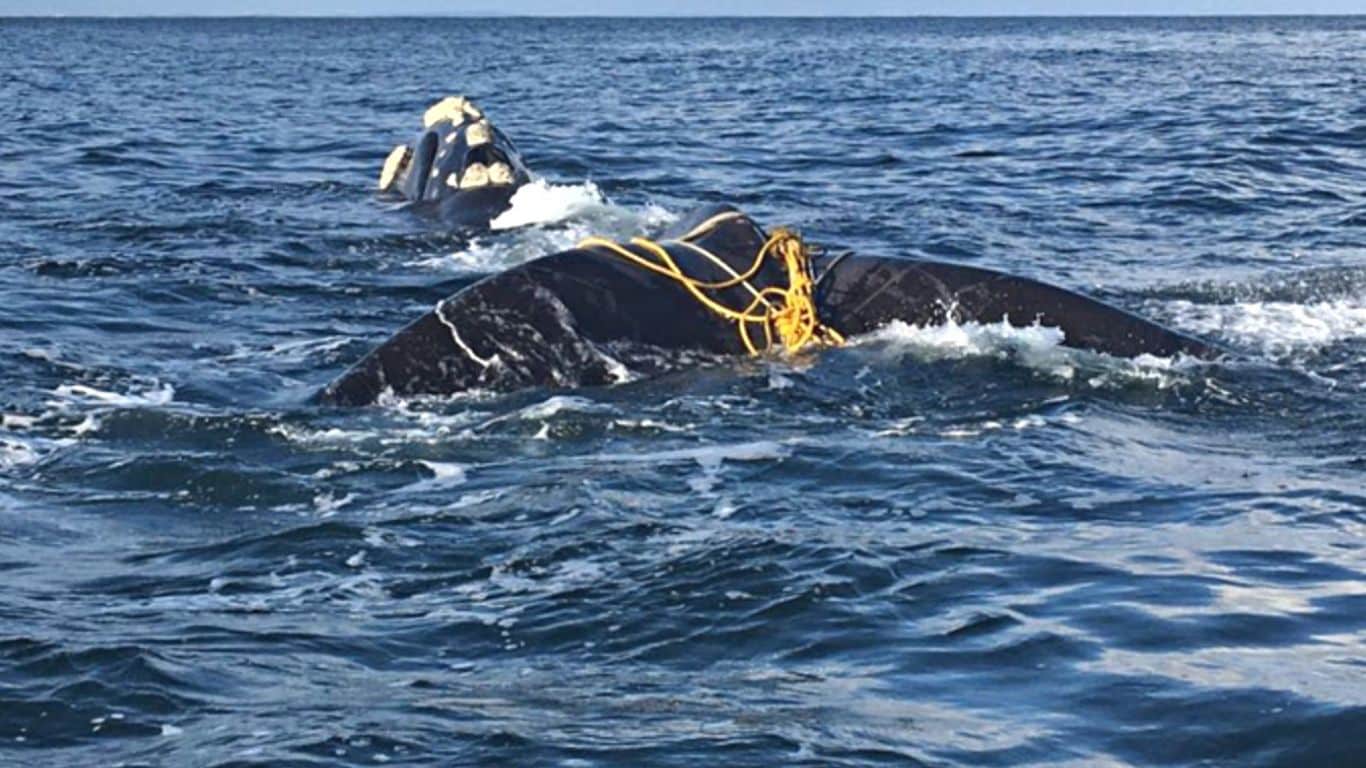
Thanks to your donations, we were able to fund this urgent need…
but the scale of the problem has increased.
During peak calving season for whales along the South African coastline – which, again, is right now – even more newborn calves and their mothers are at risk of becoming entangled in relentless fishing gear. If we can raise another $2,000 (£1,500), we can fund the purchase of two additional whale disentanglement kits for the NSRI. $2,000 does not seem like a lot to make a major contribution to the well-being of whales.
Disentanglement procedures are filmed to give researchers valuable information about the identity of the animal, the damage caused by the entanglement, and the size and species of the whale. The teams also recover the nets, buoys and ropes causing the entanglement so that skin samples can be extracted to record DNA information in the research database.
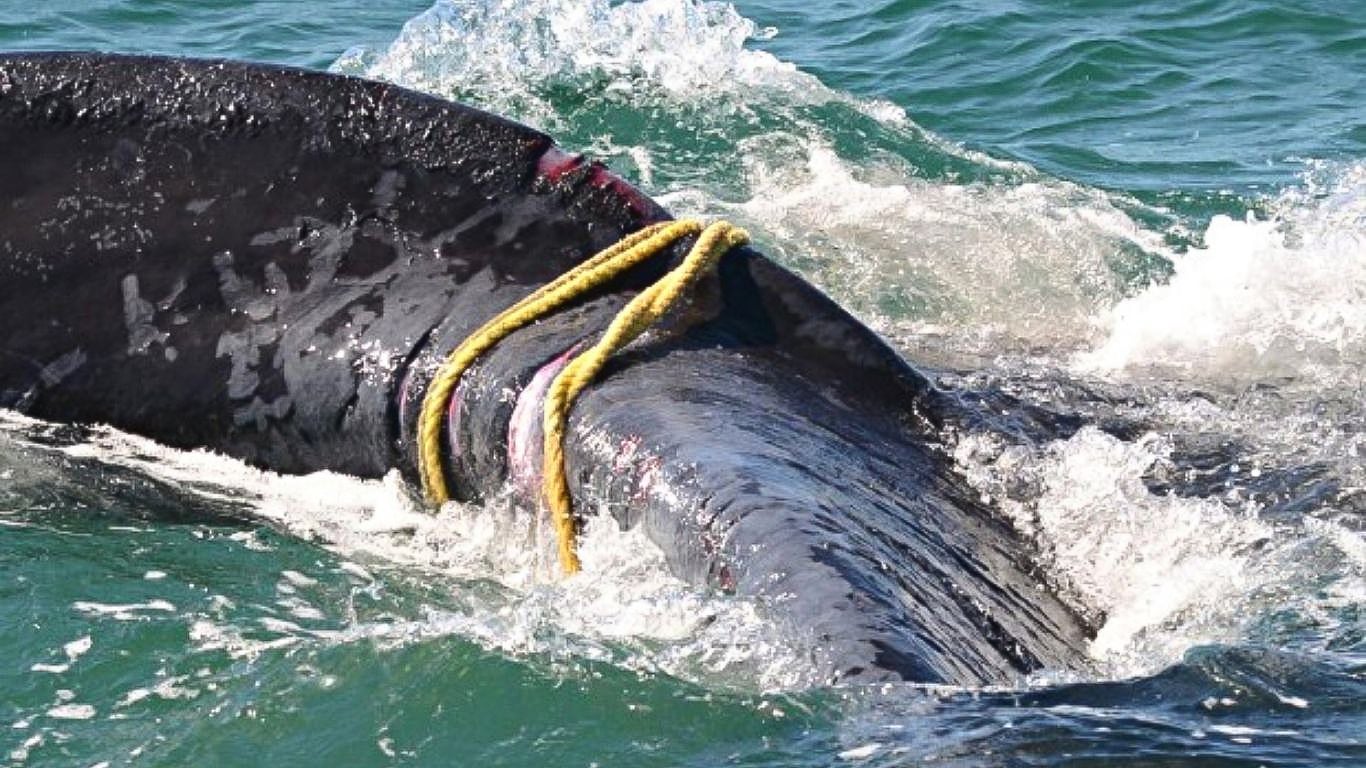
We must continue to help better equip the NSRI’s expert whale disentanglement teams so we can save more whale lives. Please, will you help today?
Climate change, habitat loss, pollution, loss of food sources, toxic substances, sonar testing and incidental by-catch are just some of the dangers these majestic animals still face. Global warming and changes in food availability mean these whales are spending longer periods in waters around Southern Africa.
Migrating whales can be seen along the country’s coastline from June up until as late as December each year. We MUST make sure the whale disentanglement teams at the stations along the country’s coastline are fully equipped to respond rapidly to all whale-entanglement reports.
Please, help us raise enough funds to provide vital specialized equipment and gear by donating right now.
Help us support the National Sea Rescue Institute and its whale disentanglement efforts to help ensure the whales along the South African coastline may continue to live well-protected and free, and capable of sustaining their young.


